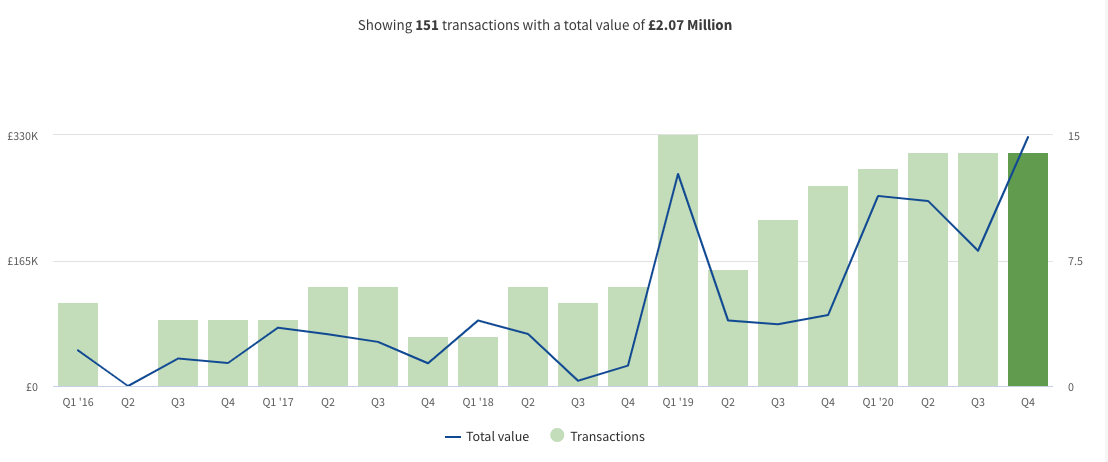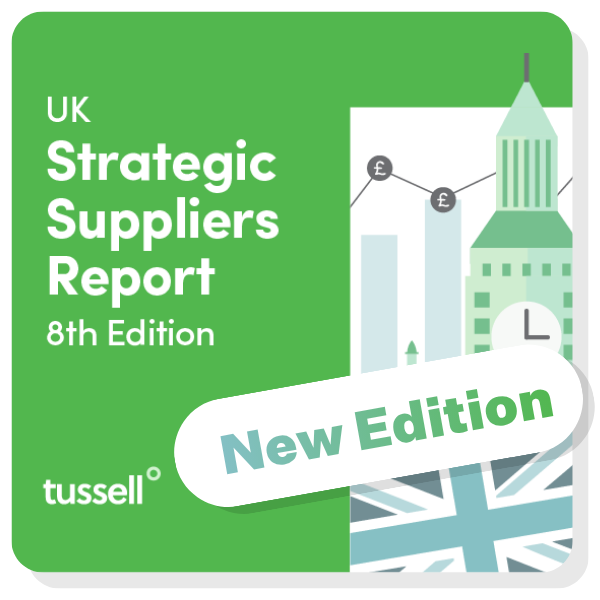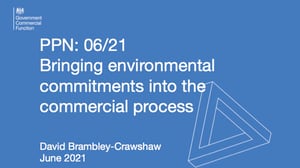Want to win big government contracts?
If the answer is yes but you're not up to speed on Carbon Reduction Plans (CRPs) - that needs to change.
From 31st September 2021, suppliers bidding on most Central Government contracts with an annual value of £5m or more, must have a CRP.
What is a Carbon Reduction Plan?
A CRP is a new type of mandatory document that is intended to demonstrate a supplier's commitment to reducing their carbon emissions, in order to help the government achieve its ambitious 2050 Net Zero target.
According to documents released by the government's commercial function, a CRP needs to:
-
be published on the bidder's website
-
detail the bidder's Green House Gas emissions in the UK
-
confirm the bidder's commitment to achieving Net Zero by 2050
-
detail the environmental management measures the bidder has in place
What do suppliers need to do to prepare?
The most important thing is to act now. Without a CRP in place, your company can be excluded from bidding on these contracts entirely.
Here's what you need to do to get ready:
-
Understand the rules by reading government guidance
-
Gather and update emissions data for your business
-
Complete the CRP and ensure statements are added to your company website
-
Add the document(s) to your bid library and have prepared statements on you CRP ready to go
The good news for suppliers who are currently lagging behind on carbon reduction, is that CRPs will NOT be used to compare bidders.
The intention from government is to encourage suppliers to think more carefully about their emissions and commit to act - rather than to immediately penalise those who emit more than others.
How can suppliers go further?
It's clear from a recent webinar hosted by Andrew Smith from the Crown Commercial Service, that carbon offsetting (rather than meaningful carbon reduction) is not what government really wants from suppliers.
Despite emission levels not currently being used to decide which supplier wins the contract, this could easily be the case in the future as global warming becomes an increasingly urgent problem.
So how can you get ahead and turn carbon reduction into a differentiator? Here are our top tips:
-
Start to capture the carbon reducing impact of particular projects or contracts retrospectively to use them as case studies
-
Measure the impact of your supply chain and encourage your suppliers to implement CRPs
-
Hire internal experts, or get outside support
Looking for expert support?
One example of a firm who is leading the way in regards to Net Zero consulting in the public sector is Anthesis.
They have worked extensively across Central and Local Government, earning more than £2m in revenue over the past five years. This is likely to have given them an intimate understanding of what government wants from a carbon reduction perspective - particularly as they have been responsible for helping develop Net Zero plans for some authorities directly.
One example is a recent award from City of York Council to help develop its Carbon Reduction Strategy.
 Source: Tussell spend data
Source: Tussell spend data
To learn how to find relevant expert partners that can help you get ahead in the public sector, book a demo of Tussell today.
Conclusion & useful resources
Suppliers should not be frightened by the introduction of CRPs.
For those who have already been consistently recording and seeking to reduce emissions, CRPs are merely a way of formalising your activity and commitments in a clear and concise way.
For those slightly behind the curve, this should be a wake up call about government's intent - but with a little concerted effort (and perhaps some outside help), putting together a CRP should be relatively simple, as well as a worthwhile investment.
Want to dig deeper into how UK public procurement might change in response to Net Zero, and what you can do to prepare? Read our analysis, Net Zero & UK Public Procurement: What You Need to Know
Resources
Below is a series of useful documents to help you learn more about Carbon Reductions Plans:




%20v1.png)









-1.png?width=800&height=450&name=Copy%20of%20LinkedIn%20+%20Twitter%20Link%20Posts%201200%20x%20628px%20(2)-1.png)